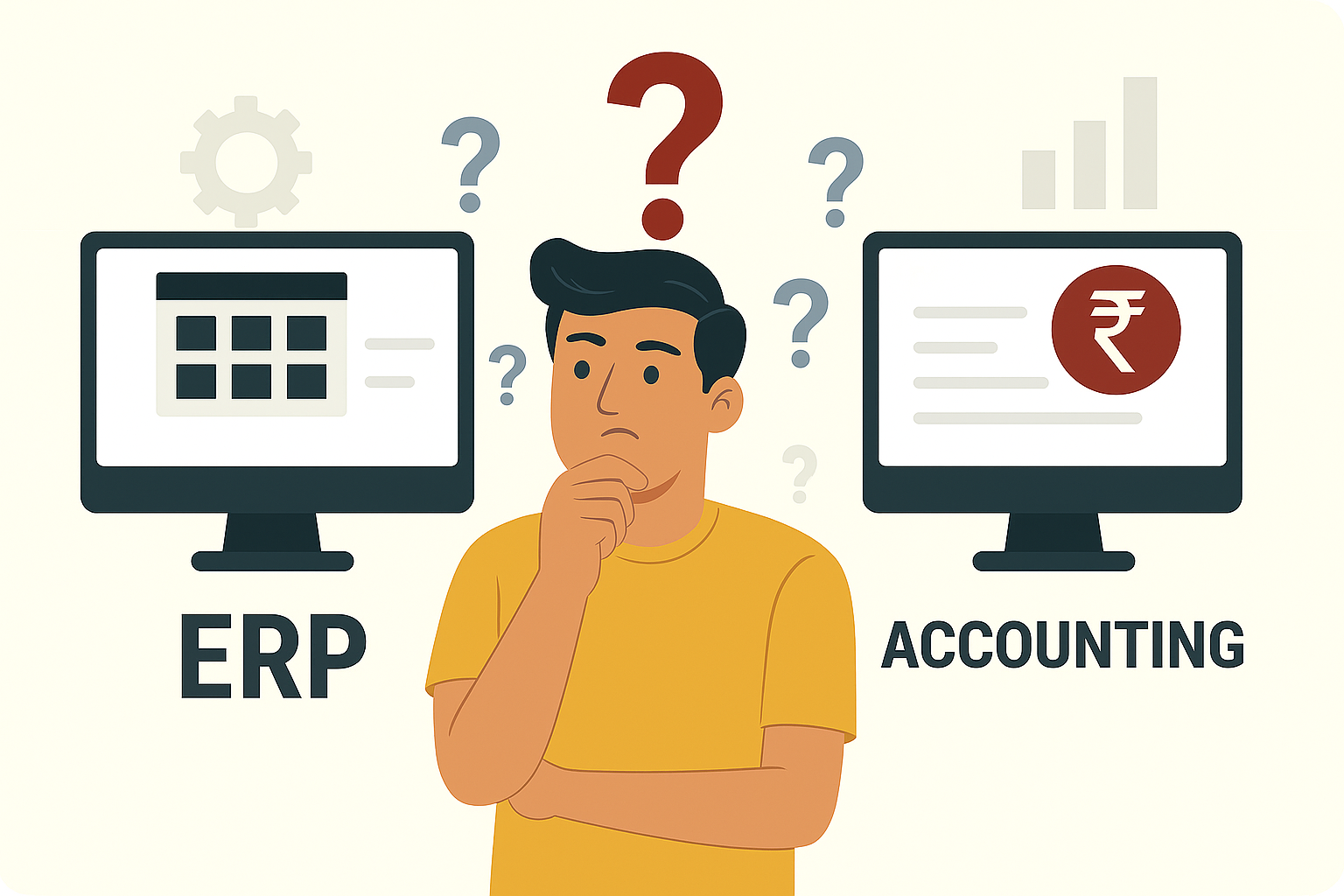
We are living in the age of AI, where choosing the right software is crucial for a company’s growth and efficiency. One of the questions frequently asked to any software company by other companies is: “What is the difference between ERP software and accounting software?” Let us help explain this so you can make the best decision for your business regardless of what type of business it is; a startup, a growing SME, or an established enterprise.
What is Accounting Software?
Accounting software is designed to manage and automate your business accounting. Think of it as your digital accountant that keeps track of sales, purchases, money received, and payments made. It also creates important financial reports. Popular accounting software in India includes Tally, Zoho Books, Tripta and QuickBooks.
Core Features:
Who is it for?
What is ERP Software?
ERP stands for Enterprise Resource Planning. It’s a more inclusive and high-performance system that includes all major business functions—not just accounting. Imagine ERP as the spine of your company, connecting finance, inventory, sales, HR, procurement, manufacturing, and more, all in one platform.
Core Features:
Who is it for?
Main Differences Between ERP and Accounting Software
Let’s compare them side by side for clarity:
How does each software affect your business?
Accounting software: The specialist
ERP Software: The All-in-One Solution
Real-Life Example: Textile Manufacturer
Scenario 1: Using Accounting Software
Scenario 2: Using ERP Software
When Should You Choose Accounting Software?
Example:
A small retail shop, a CA firm, or a service provider with limited inventory and simple billing.
When Should You Choose ERP Software?
Example:
A growing manufacturing unit, multiple location distributor, or an export house.
Key Benefits of Each
Accounting Software
Accounting software offers a simple and intuitive interface, making it easy for users to get started with minimal training. It is designed for quick setup and requires considerably lower initial and maintenance costs compared to larger systems. Designed for Indian businesses, it focuses specially on GST and tax compliance, making sure users stay updated and compliant with local regulations.
ERP Software
ERP software helps automate all your business processes—from accounting to inventory—in one system. It keeps all your data in one place, making it easier to take smart decisions. With powerful tools for analysis and future planning, it helps you understand what’s working and what’s not. Whether your business is growing or becoming more complex, ERP software is built to handle it all while keeping you compliant with rules and regulations.
Common Misconceptions
“ERP is only for big companies.”
Not anymore! Many Indian ERP solutions can be customized and are affordable for SMEs. You can start with core functions and add more as you grow.
“Accounting software is enough for manufacturing.”
Only if your processes are simple. As soon as you need to track raw materials, production, or multiple locations, you’ll need ERP features.
Making the Right Choice: Questions to Ask
Conclusion
Accounting software is perfect for businesses that need a reliable, easy-to-use solution for managing finances and GST compliance. It keeps your books in order and helps you file returns on time.
ERP software goes beyond accounting, including all your business processes into a single, powerful platform. It’s the right choice if you want to automate, scale, and gain a competitive edge with real-time insights and collaboration.
A sound advice to make sure your business grows is simple:
Leave a comment